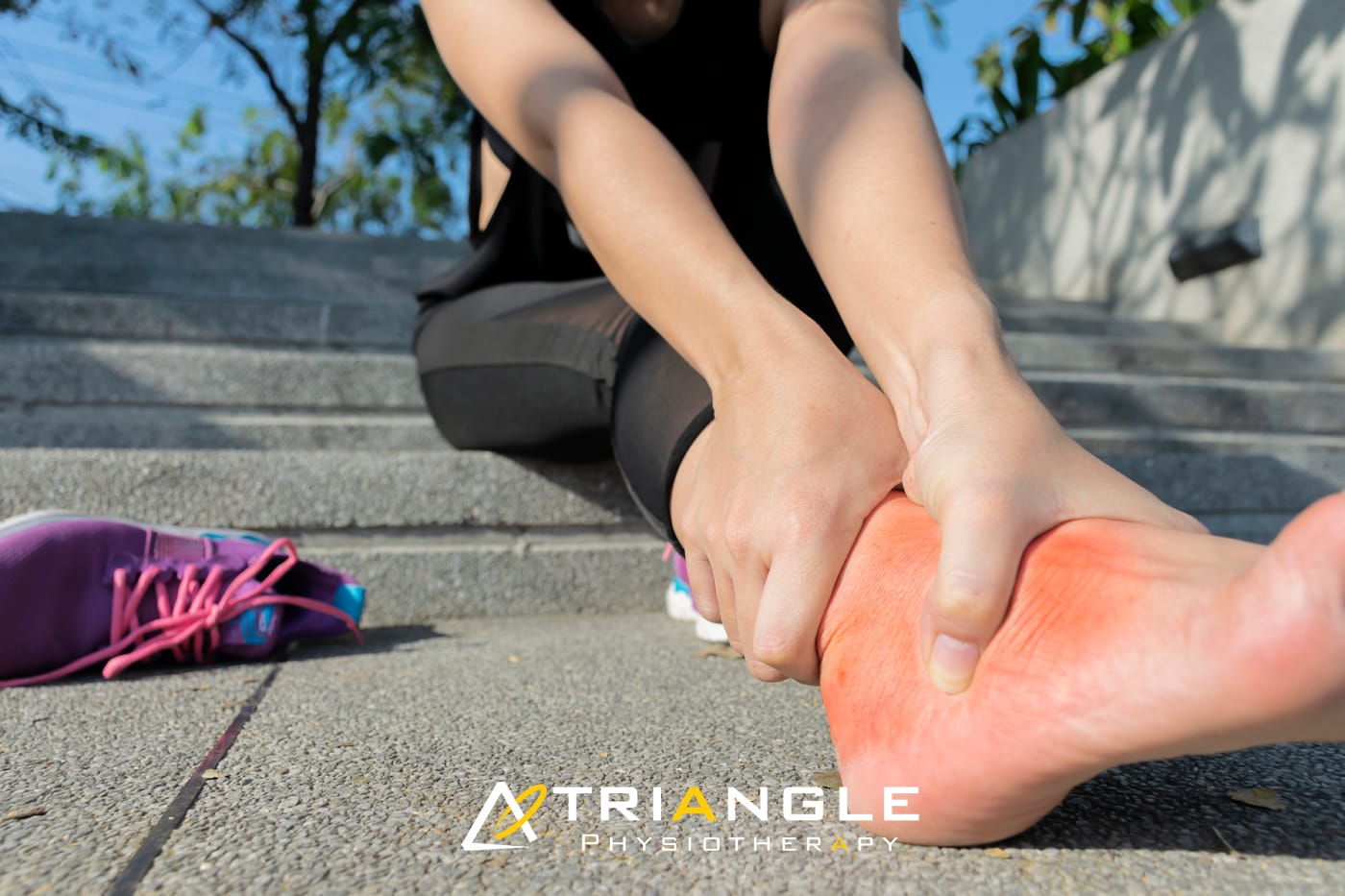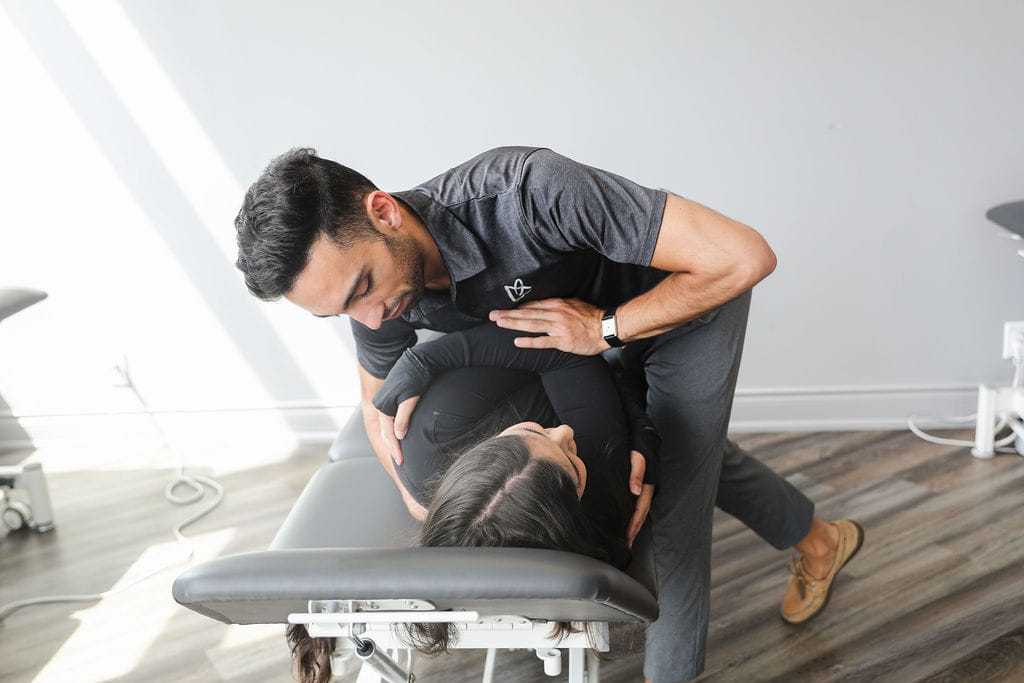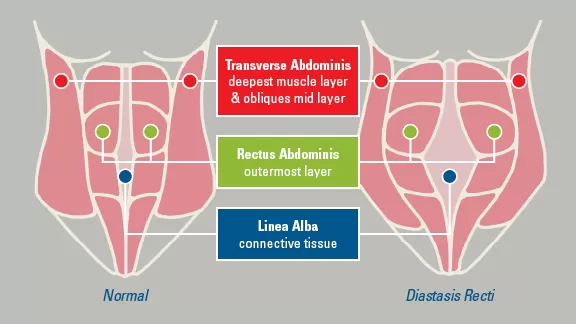The Importance of Regular Physiotherapy Visits
Physiotherapy is a crucial aspect of healthcare that aims to improve movement and function when someone is affected by injury, illness, or disability. Regular visits to a physiotherapist in Oakville can provide a range of benefits, from reducing pain and improving mobility to preventing further injury and enhancing overall quality of life. Whether you are looking for a “physiotherapist near me” or the best physiotherapy Oakville, it is important to prioritize your physical well-being. In this blog, we will explore the important benefits of regular visits to a physiotherapist in Oakville and why it is essential for your overall health and wellness.
Addressing and Preventing Injuries
One of the key advantages of regular visits to a physiotherapist in Oakville is the ability to address existing injuries and prevent new ones from occurring. Through targeted exercises, manual therapy, and expert guidance, a physiotherapist can help you strengthen weak areas, improve flexibility, and correct imbalances that may be leading to injuries. By taking a proactive approach to your physical health, you can significantly reduce the risk of future injuries and maintain optimal mobility and function. Investing in regular sessions with a physiotherapist is a valuable step towards preserving your long-term well-being and enjoying a life free from unnecessary pain and limitations.
Improving Mobility and Function
Regular visits to a physiotherapist in Oakville not only aid in preventing and addressing injuries but also play a crucial role in enhancing mobility and function. Whether you’re recovering from a recent injury or looking to optimize your physical performance, a physiotherapist can create tailored treatment plans to help you regain strength, flexibility, and range of motion. By focusing on specific areas of improvement, such as joint mobility and muscle activation, you can experience increased functionality in your daily activities and sports performance. Consistent sessions with a physiotherapist can lead to enhanced overall movement quality, allowing you to move with ease and confidence in all aspects of your life.
Managing Chronic Pain
In addition to improving mobility and function, regular visits to a physiotherapist in Oakville can also be instrumental in managing chronic pain. Whether you suffer from conditions like arthritis, fibromyalgia, or chronic back pain, a skilled physiotherapist can assess your specific needs and develop a comprehensive treatment plan to alleviate discomfort and improve your quality of life. Through a combination of manual therapy, targeted exercises, and lifestyle modifications, physiotherapy can help reduce pain levels, increase flexibility, and enhance your overall well-being. By addressing the root causes of chronic pain and providing ongoing support, a physiotherapist can empower you to better manage your symptoms and enjoy a more active and fulfilling lifestyle.
Rehabilitation After Surgery
Following surgery, rehabilitation plays a crucial role in ensuring a successful recovery. Whether you’ve undergone orthopedic, neurological, or cardiac surgery, a physiotherapist in Oakville can tailor a rehabilitation program to suit your specific needs and optimize your healing process. By focusing on restoring range of motion, strength, and function, a physiotherapy regimen can help expedite your recovery, prevent complications, and facilitate a safe return to your daily activities. With personalized care and expert guidance from a physiotherapist, you can regain confidence in your body’s abilities and work towards achieving a full recovery post-surgery. Remember, investing in your rehabilitation now can lead to a brighter, healthier future ahead.
The Role of a Physiotherapist in Holistic Health Care
In addition to aiding in recovery after surgery, physiotherapists in Oakville also play a vital role in holistic health care. They assess not just the physical aspect but also consider the mental, emotional, and social well-being of their patients. By developing personalized treatment plans, physiotherapists help individuals achieve overall wellness and prevent future injuries. Their expertise in manual therapy, exercises, and education empowers patients to take charge of their health and make lasting lifestyle changes. By embracing a holistic approach to health care, physiotherapists contribute to improving the quality of life and promoting long-term well-being for their patients. Your journey to optimal health starts with regular visits to a physiotherapist.
Making Regular Visits to a Physiotherapist a Priority
Incorporating regular visits to a physiotherapist in Oakville into your routine is not just beneficial but essential for maintaining your overall well-being. By prioritizing these appointments, you are investing in your health and taking proactive steps towards preventing injuries and improving your quality of life. Consistency is key when it comes to reaping the full benefits of physiotherapy, as ongoing assessment and treatment can address any underlying issues before they escalate. Remember, your body deserves the best care possible, and a physiotherapist can guide you on a path towards optimal health. Make it a priority to schedule regular visits and experience the transformative impact on your physical and mental health.
“Regular visits to a physiotherapist can provide significant benefits for your overall well-being. Triangle Physiotherapy offers expert services across the GTA, including Physiotherapy in Etobicoke, Oakville, North York, Toronto, Lawrence Park, Queens Quay, Erin Mills, Mississauga, and Liberty Village. Our skilled physiotherapists are here to help you maintain optimal health and prevent potential issues.”
Physiotherapy is a vital field in healthcare. Physiotherapists are healthcare professionals that can help people of all ages live a healthy lifestyle.
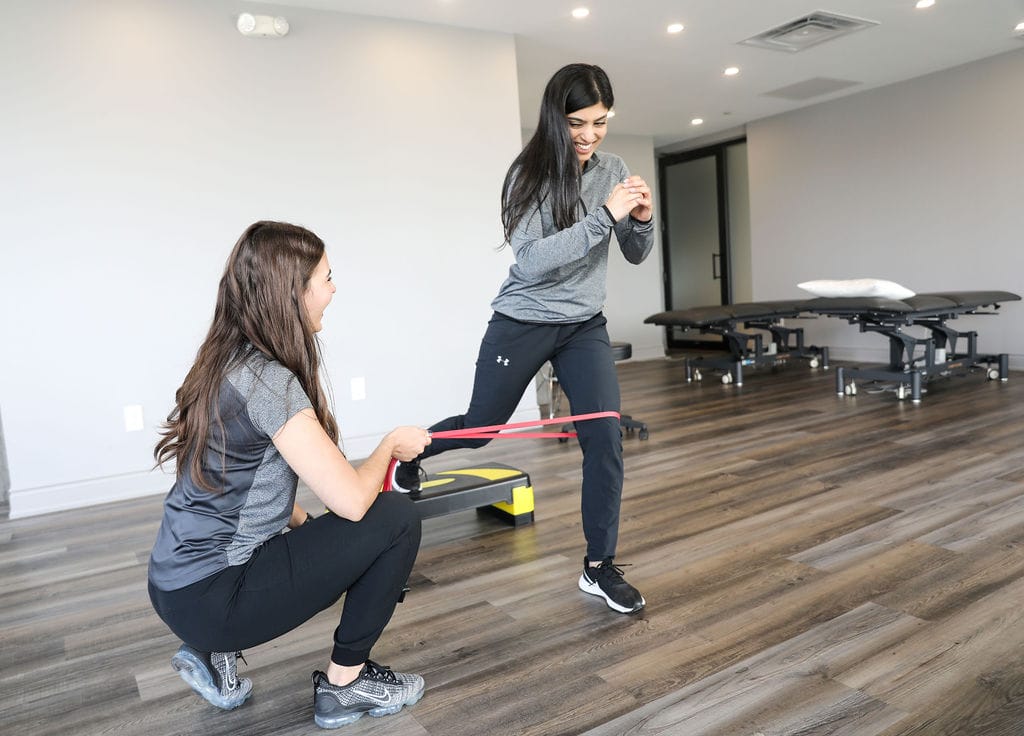
Here are seven common myths about physiotherapy debunked:
1. Myth: Physiotherapy is only for injuries.
Reality: While physiotherapy is indeed crucial for injury recovery, it is also beneficial for managing chronic conditions, post-surgical rehabilitation, preventive care, and enhancing athletic performance. Physiotherapists work with patients across various stages of life and health conditions to improve mobility and quality of life.
2. Myth: Physiotherapy is just about exercise.
Reality: Physiotherapy encompasses a wide range of treatments beyond exercises, including manual therapy, electrical stimulation, ultrasound therapy, dry needling, and patient education. These modalities are tailored to address specific conditions and patient needs.
3. Myth: Physiotherapy is painful.
Reality: While some discomfort might be involved, especially when working through injuries or stiffness, physiotherapists aim to minimize pain and improve function. They use techniques that manage pain effectively and strive to make the rehabilitation process as comfortable as possible.
4. Myth: You need a referral to see a physiotherapist.
Reality: In Ontario, you can directly access physiotherapy services without a doctor’s referral. This direct access allows for quicker intervention and treatment, which can be crucial for recovery and pain management. However, you must check with your insurance provider if they need a doctor’s referral to reimburse any treatment fees.
5. Myth: Physiotherapy is only for older people.
Reality: Physiotherapy benefits people of all ages. Children with developmental issues, athletes needing performance enhancement, adults recovering from surgeries, and elderly individuals managing arthritis all benefit from physiotherapy.
6. Myth: Once you start physiotherapy, you’ll need it forever.
Reality: Physiotherapy aims to empower patients with the knowledge and exercises to manage their conditions independently. Many patients achieve their goals and maintain their progress through self-management techniques learned during therapy.
7. Myth: All physiotherapists are the same.
Reality: Physiotherapists specialize in different areas such as sports physiotherapy, pediatric physiotherapy, pelvic health physiotherapy, geriatric physiotherapy, cardiopulmonary physiotherapy, and more. Their training and expertise can vary widely, and it’s essential to find a therapist whose specialization aligns with your specific needs.
Understanding these myths helps in recognizing the comprehensive and essential role of physiotherapy in healthcare, encouraging individuals to join Physiotherapy Oakville for appropriate care and optimal health outcomes.
How do I book an appointment at a Triangle Physiotherapy Clinic near me?
Click HERE to book an appointment with a physiotherapist at one of our eight locations.
- Physiotherapy Etobicoke – Triangle Physiotherapy Etobicoke
- Oakville Physiotherapy Clinic – Triangle Physiotherapy Oakville
- Physiotherapy North York – Triangle Physiotherapy North York
- Mississauga Physiotherapy Clinics – Triangle Physiotherapy Mississauga
- Downtown Physiotherapy Clinics – Triangle Physiotherapy King West
- Uptown Physiotherapy Clinics – Triangle Physiotherapy Lawrence Park
- Physiotherapy Clinic Downtown Toronto – Triangle Physiotherapy Queens Quay
- Physiotherapy Clinics Mississauga – Triangle Physiotherapy Erin Mills
Debunking myths about physiotherapy helps more people understand its benefits for pain management and overall health. If you’re looking for reliable physiotherapy in Etobicoke, Oakville, North York, Toronto, Lawrence Park, Queens Quay, Erin Mills, Mississauga, or Liberty Village, there are qualified physiotherapists available to provide expert care and help you achieve your wellness goals.
Glute exercises are fantastic for improving overall lower body strength, stability, and athletic performance. The gluteal muscles exert significant effort in maintaining alignment, contributing to both posture and movement, enhancing strength, and providing support to adjacent muscle groups as well.
Why are strong Glutes important?
Strong glutes are essential for various reasons:
- Improved Posture: Strong glutes help maintain proper alignment of the pelvis, which is crucial for good posture. Weak glutes can contribute to postural imbalances and increase the risk of lower back pain and injury.
- Enhanced Athletic Performance: The glutes are powerhouse muscles involved in many movements, including running, jumping, and lifting. Strengthening them can improve performance in sports and other physical activities.
- Prevention of Injuries: Strong glutes can help stabilize the pelvis and knees, reducing the risk of injuries such as ACL tears, IT band syndrome, and lower back pain. They also provide support during movements that involve rotation or lateral movements.
- Increased Strength: The glutes are one of the largest muscle groups in the body. Strengthening them can improve overall lower body strength, making daily tasks easier and enhancing functional fitness.
- Better Aesthetic Appearance: Developed glute muscles contribute to a toned and sculpted lower body appearance. Many people aim to strengthen their glutes for aesthetic reasons as well as functional benefits.
What muscles make up the Glutes?
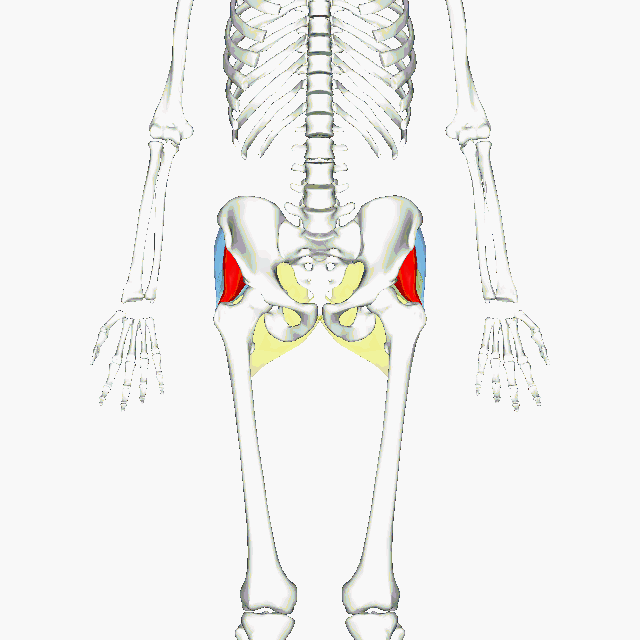
Gluteal Muscles. The Maximus (yellow), medius (blue) and minimus (red).
The glutes, or gluteal muscles, are comprised of three main muscles:
- Gluteus Maximus: This is the largest muscle in the gluteal group and one of the strongest muscles in the human body. It forms much of the shape and appearance of the buttocks. The gluteus maximus is primarily responsible for hip extension, such as when you stand up from a seated position or climb stairs.
- Gluteus Medius: Located on the outer surface of the pelvis, the gluteus medius is responsible for hip abduction (moving the leg away from the body’s midline) and internal rotation of the hip joint. It plays a crucial role in stabilizing the pelvis during activities like walking, running, and standing on one leg.
- Gluteus Minimus: This smaller muscle lies beneath the gluteus medius and has similar functions, assisting in hip abduction and internal rotation. It also helps stabilize the pelvis and maintain balance during movement.
Together, these muscles work synergistically to provide stability, power, and mobility to the hips and lower body. Strengthening all three muscles is essential for overall lower body strength, function, and injury prevention.
8 Glute Exercises you can do at home
Single Leg Squat


Split Squat


Single-Leg Romanian Dead Lift


Single-Leg Hip Thrust


Banded Side-Step


Side-Lying Leg Raise




Side-Plank


Ref: Gluteal Muscle Forces during Hip-Focused Injury Prevention and Rehabilitation Exercises
TYLER J. COLLINGS, MATTHEW N. BOURNE, ROD S. BARRETT, EVY MEINDERS, BASÍLIO A. M. GONÇALVES, ANTHONY J. SHIELD, and LAURA E. DIAMOND School of Health Sciences and SocialWork, Griffith University, Gold Coast Campus, Queensland, AUSTRALIA
It is important that you avoid injury while doing any type of exercise. Make sure you consult your physiotherapist at Physiotherapy Oakville throughout your workout journey to ensure you are doing the exercises correctly and avoiding injury.
Click here to book an appointment with a physiotherapist at one of our eight locations.
- Physiotherapy Etobicoke – Triangle Physiotherapy Etobicoke
- Oakville Physiotherapy Clinic – Triangle Physiotherapy Oakville
- Physiotherapy North York – Triangle Physiotherapy North York
- Mississauga Physiotherapy Clinics – Triangle Physiotherapy Mississauga
- Downtown Physiotherapy Clinics – Triangle Physiotherapy King West
- Uptown Physiotherapy Clinics – Triangle Physiotherapy Lawrence Park
- Physiotherapy Clinic Downtown Toronto – Triangle Physiotherapy Queens Quay
- Physiotherapy Clinics Mississauga – Triangle Physiotherapy Erin Mills
“Strengthening your glutes with at-home exercises is a great way to improve your overall fitness. For personalized guidance, Triangle Physiotherapy offers expert services across the GTA, including Physiotherapy in Etobicoke, Oakville, North York, Toronto, Lawrence Park, Queens Quay, Erin Mills, Mississauga, and Liberty Village. Our physiotherapists can help you create a tailored exercise plan to meet your specific needs.”
Ankle pain can be a major hindrance to our daily activities, making it difficult to walk, run, or even stand for extended periods. Whether it’s due to an injury, chronic condition, or overuse, finding effective solutions to alleviate ankle pain is crucial for restoring mobility and strength. In this article, we will explore some expert tips on effective physiotherapy exercises for ankle pain, aiming to not only relieve discomfort but also enhance the overall function of your ankle. So, if you’re looking for ways to regain control over your ankle health, keep reading to discover these useful exercises and start your journey towards pain-free movement.
Understanding Ankle Pain: Causes and Symptoms
Ankle pain can be a debilitating condition that affects individuals of all ages, from young athletes to the elderly. Understanding the causes and symptoms of ankle pain is crucial in order to find relief and prevent further injury.
The symptoms of ankle pain can vary depending on the underlying cause. Common symptoms include swelling, tenderness, and stiffness. Individuals may also experience difficulty walking or bearing weight on the affected ankle. In some cases, ankle pain can be accompanied by bruising or a visible deformity.
Understanding the causes and symptoms of ankle pain is the first step towards finding relief and restoring functionality. By seeking proper diagnosis and following the guidance of healthcare professionals, individuals can benefit from effective physiotherapy exercises for ankle pain.

Importance of Physiotherapy in Ankle Pain Management
Physiotherapy plays a crucial role in the management of ankle pain. With the help of effective physiotherapy exercises specifically tailored to target the ankle, individuals can experience improvements in pain.
A key aspect of physiotherapy for ankle pain is restoring mobility. Through a range of exercises and techniques, physiotherapists work to increase the flexibility and motion of the ankle joint. These exercises may include stretching, range of motion exercises, and manual therapy techniques.
In addition to mobility, physiotherapy also focuses on enhancing the strength of the ankle muscles. Strengthening exercises, such as calf raises, ankle circles, and resistance band exercises, are often prescribed to improve the stability and support around the ankle joint. Stronger muscles can effectively help in absorbing shock and preventing further injuries.
Key Principles of Physiotherapy Exercises for Ankle Pain Relief
Physiotherapy Oakville exercises play a crucial role in providing relief from ankle pain. By incorporating specific exercises into a comprehensive treatment plan, individuals can restore mobility and strengthen their ankles, ultimately alleviating pain and preventing future injuries.
One key principle of effective physiotherapy exercises for ankle pain relief is restoring flexibility. Gentle stretches and range-of-motion exercises can help increase the flexibility of the ankle joint, which in turn improves overall joint function. Flexibility exercises may include ankle circles, toe curls, and calf stretches.
Additionally, proprioception exercises are integral to the rehabilitation process. Proprioception refers to the body’s ability to perceive its position in space. After an ankle injury, this sense may be disrupted, leading to balance issues and an increased risk of falls. Incorporating exercises that challenge balance and proprioception, such as standing on one foot or using a wobble board, can greatly improve overall stability and reduce ankle pain.
For optimal results and to ensure you are performing the exercises correctly, it is recommended to consult with your physiotherapist at Physiotherapy Oakville throughout your rehabilitation journey.
Strengthening Exercises for Ankle Stability and Support

If you’re someone who has experienced ankle pain or instability, you understand the importance of having strong and stable ankles. Whether you’re an athlete or simply want to prevent injuries, implementing effective physiotherapy exercises for ankle pain is essential for restoring mobility and strength.
One of the most effective exercises for improving ankle stability is the single-leg balance. This exercise involves standing on one leg and maintaining your balance for a set amount of time. Not only does this exercise strengthen the muscles surrounding your ankle, but it also improves proprioception, which is your body’s ability to sense its position in space. By practicing this exercise regularly, you can enhance your ankle stability and prevent future injuries.
Lastly, calf raises are a great exercise to target the muscles in your lower leg, including those surrounding your ankle. Stand with your feet hip-width apart and lift your heels off the ground as high as possible, then slowly lower them back down. This exercise specifically targets the gastrocnemius and soleus muscles, which play a significant role in ankle stability and support.
Neuromuscular Exercises for Pain Management and Prevention

Neuromuscular exercises are gaining popularity in the field of pain management and prevention. These exercises focus on strengthening the connection between the nervous system and the muscles, helping to alleviate pain and improve overall mobility. One area where these exercises have shown promise is in the treatment of ankle pain.
Effective physiotherapy exercises for ankle pain involve restoring mobility and strength to the affected area. These exercises may include ankle stretches, balance training, and resistance exercises. The goal is to target the specific muscles and ligaments surrounding the ankle joint, improving stability and range of motion.
Another exercise that can be beneficial is heel raises. This exercise involves standing on the edge of a step or curb and raising your heels as high as possible. This works the muscles in your calves, which can help support and stabilize the ankle joint.
Resistance band exercises are also effective in strengthening the ankle. These exercises involve using a resistance band to provide resistance during ankle movements, such as flexion, extension, inversion, and eversion. These movements help to target and strengthen the muscles that support the ankle joint.
Progressive Resistance Training for Ankle Strength and Functionality
Progressive resistance training is a highly beneficial approach for improving ankle strength and functionality. Whether you’re recovering from an injury or simply looking to enhance your athletic performance, incorporating effective physiotherapy exercises for ankle pain is crucial for restoring mobility and strength.
One of the most effective exercises for ankle strength is the calf raise. This exercise targets the muscles in the calves and ankles, helping to build strength and stability. Begin by standing with your feet hip-width apart, and then slowly rise onto the balls of your feet. Hold this position for a few seconds before slowly lowering your heels back down. To intensify the exercise, try performing it on a step, allowing your heels to drop below the level of the step before rising back up.
Another great exercise for ankle strength is the ankle dorsiflexion exercise. This exercise focuses on strengthening the muscles that enable you to flex your ankles upwards. Sit on a chair with your feet flat on the ground and place a resistance band around the ball of your foot. While keeping your heel on the ground, slowly pull your toes towards you against the resistance of the band. Hold for a few seconds and then release. Repeat this movement for several repetitions, gradually increasing the resistance as you progress.
Additionally, incorporating balance and proprioception exercises into your progressive resistance training routine can further enhance ankle strength and functionality. Exercises like single-leg stance or standing on an unstable surface, such as a balance board or foam pad, can help improve your body’s awareness of its position in space and challenge the stabilizing muscles around the ankle.
Incorporating Stretching and Flexibility Exercises in Your Routine
Incorporating stretching and flexibility exercises into your daily routine is essential not only for athletes but for anyone looking to improve their overall fitness and well-being.
The first step towards addressing ankle pain and improving flexibility is to consult with a physiotherapist who can assess your specific needs and design a personalized exercise plan. Common exercises used in physiotherapy for ankle pain include calf stretches, ankle rotations, and plantar fascia stretches. These exercises target the muscles and ligaments surrounding the ankle, increasing flexibility and reducing pain.
Tips for Safely Performing Physiotherapy Exercises for Ankle Pain
If you’re suffering from ankle pain and looking for effective ways to restore mobility and strength, physiotherapy exercises can be extremely beneficial. However, it’s important to approach these exercises with caution and prioritize safety to avoid further injury. Here are some tips to help you safely perform physiotherapy exercises for ankle pain.
First and foremost, always consult a professional physiotherapist before starting any exercise routine. They can assess your condition and recommend specific exercises that are best suited for your individual needs. This will ensure that you’re performing the right exercises and avoiding any that may exacerbate your pain.
It’s crucial to start slow and gradually progress as your ankle gains strength and flexibility. Avoid pushing yourself too hard or performing exercises that cause excessive pain. Remember to listen to your body and give it time to heal. Taking breaks in between exercises and giving yourself time for rest and recovery is equally important.
Conclusion
Don’t let these physical conditions ever ride on you. You can consult any of our locations of Triangle Physiotherapy or simply Book An Appointment online.
“Ankle pain can be managed effectively with the right physiotherapy exercises. At Triangle Physiotherapy, we provide expert care across the GTA, including Physiotherapy in Etobicoke, Oakville, North York, Toronto, Lawrence Park, Queens Quay, Erin Mills, Mississauga, and Liberty Village. Our experienced physiotherapists are here to help you regain strength and mobility in your ankles.”
Ankle rehabilitation through physiotherapy involves a systematic approach to regaining strength, flexibility, stability, and functionality after an ankle injury. Here’s a step-by-step guide:
Ankle Anatomy and Injury Overview
Ankles are complex joints that connect the lower leg bones (the tibia and fibula) to the foot bones (the talus and calcaneus). The anatomy of the ankle includes bones, ligaments, tendons, and muscles, all of which work together to provide stability, support, and mobility.
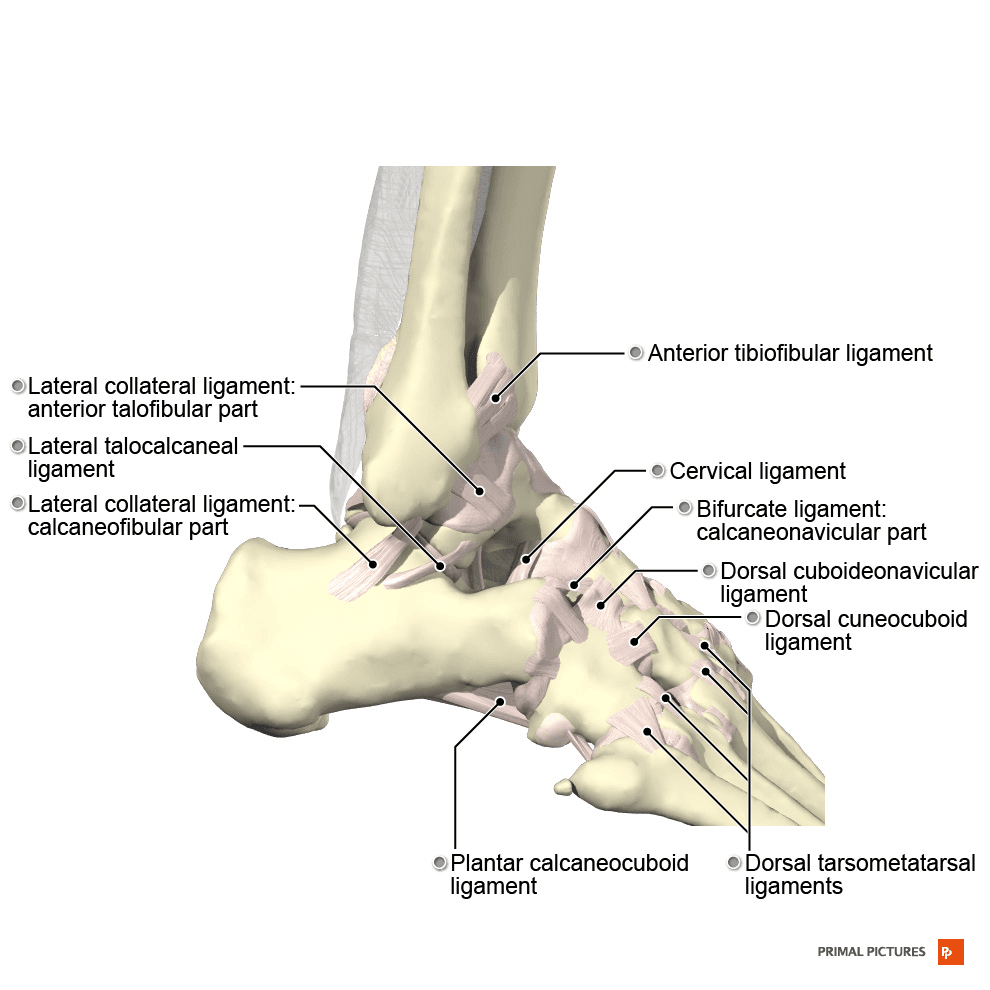
Common Ankle Injuries
- Sprains: Ankle sprains occur when the ligaments are stretched or torn, usually due to an inversion or eversion injury. Lateral ankle sprains, involving the ligaments on the outside of the ankle, are more common than medial ankle sprains.
- Fractures: Fractures can occur in any of the ankle bones, typically as a result of trauma or excessive force. The lateral malleolus (part of the fibula) and the medial malleolus (part of the tibia) are commonly fractured in ankle injuries.
- Achilles Tendon Rupture: This injury involves a tear or rupture of the Achilles tendon, often occurring during activities that involve sudden forceful plantarflexion of the foot.
- Tendinitis: Inflammation of the tendons around the ankle, such as the Achilles tendon or the peroneal tendons, can result from overuse, improper footwear, or biomechanical issues.
Why Physiotherapy for Ankle Rehabilitation?
Physiotherapy is a crucial component of ankle rehabilitation for several reasons:
- Expert Assessment: Physiotherapists are trained to assess musculoskeletal conditions and movement dysfunctions. They can accurately diagnose the extent and nature of the ankle injury, identifying specific impairments and deficits that need to be addressed.
- Individualized Treatment Plans: Physiotherapists develop personalized treatment plans tailored to each patient’s needs, considering factors such as the severity of the injury, functional limitations, and personal goals. This ensures that rehabilitation is targeted and effective.
- Pain Management: Ankle injuries often result in pain and inflammation. Physiotherapists employ various modalities and techniques to manage pain, such as manual therapy, modalities like ultrasound or electrical stimulation, and therapeutic exercises designed to alleviate discomfort.
- Restoration of Function: Physiotherapy aims to restore optimal function to the ankle joint. Therapists use a combination of exercises, manual therapy, and functional activities to improve range of motion, strength, flexibility, and proprioception.
- Prevention of Complications: Without proper rehabilitation, ankle injuries can lead to complications such as chronic pain, stiffness, weakness, instability, and increased risk of re-injury. Physiotherapy helps prevent these complications by promoting optimal healing and restoring normal function.
- Optimizing Recovery Time: Physiotherapy can expedite the recovery process by facilitating tissue healing, reducing swelling, and promoting efficient movement patterns. This can help patients return to their normal activities, work, and sports sooner than if they were to rely solely on rest and self-management.
- Education and Empowerment: Physiotherapists educate patients about their injury, rehabilitation process, and strategies for injury prevention. By understanding their condition and how to manage it, patients feel empowered to take an active role in their recovery and make informed decisions about their health.
- Customized Rehabilitation Programs: Physiotherapists design comprehensive rehabilitation programs that evolve as the patient progresses. These programs include a combination of therapeutic exercises, manual therapy, modalities, and functional training tailored to address the specific needs and goals of the individual.
- Coordination of Care: Physiotherapists often work closely with other healthcare professionals, such as orthopedic surgeons, sports medicine physicians, and athletic trainers, to ensure comprehensive and coordinated care for the patient. This multidisciplinary approach optimizes outcomes and promotes continuity of care.
Step-by-Step Ankle Rehabilitation Through Physiotherapy
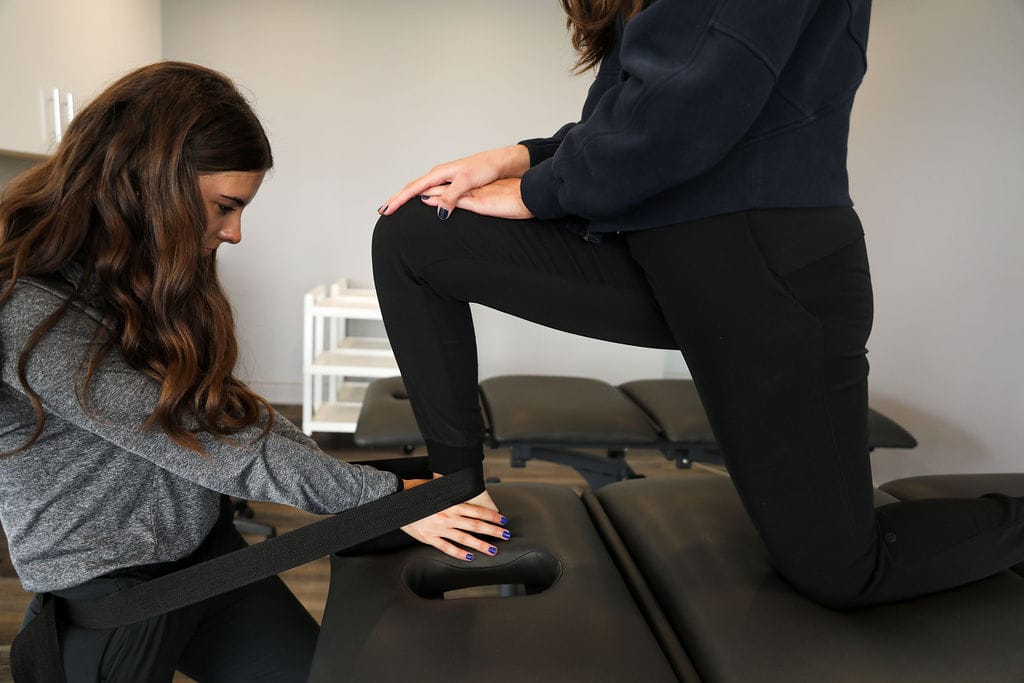
Step 1: Initial Assessment
Our physiotherapist will conduct a thorough assessment of your condition, including a detailed medical history review and a physical examination. This step helps us understand your specific concerns and develop an appropriate treatment plan.
Step 2: Pain Management
Physiotherapy plays a significant role in pain management through various techniques and modalities tailored to each individual’s needs.
Pain management techniques that may be used in your rehabilitation are:
- Heat/Cold Therapy
- Manual Therapy
- Electrotherapy
- Education and self-management strategies
- Activity modification
Step 3: Range of Motion Exercises
Step 4: Strengthening Exercises
Step 5: Balance and Proprioception
Step 6: Education and Prevention
Click here to book an appointment with a physiotherapist at one of our eight locations.
- Physiotherapy Etobicoke – Triangle Physiotherapy Etobicoke
- Oakville Physiotherapy Clinic – Triangle Physiotherapy Oakville
- Physiotherapy North York – Triangle Physiotherapy North York
- Mississauga Physiotherapy Clinics – Triangle Physiotherapy Mississauga
- Downtown Physiotherapy Clinics – Triangle Physiotherapy King West
- Uptown Physiotherapy Clinics – Triangle Physiotherapy Lawrence Park
- Physiotherapy Clinic Downtown Toronto – Triangle Physiotherapy Queens Quay
- Physiotherapy Clinics Mississauga – Triangle Physiotherapy Erin Mills
“Effective ankle rehabilitation requires expert physiotherapy care. Triangle Physiotherapy offers specialized services across the GTA, including Physiotherapy in Etobicoke, Oakville, North York, Toronto, Lawrence Park, Queens Quay, Erin Mills, Mississauga, and Liberty Village. Our experienced team is here to help you recover strength, mobility, and confidence in your ankles.”
Vertigo is a common vestibular disorder characterized by a sensation of spinning or dizziness, often accompanied by nausea, sweating, and balance problems. It can significantly impact daily life and lead to falls and injuries if not properly managed. While vertigo can have various underlying causes, including inner ear issues, vestibular migraines, and neurological conditions, physiotherapy can play a crucial role in managing symptoms and improving balance. In this article, we’ll explore some effective physiotherapy tips for individuals dealing with vertigo and how these exercises can help them regain their balance and quality of life.
Understanding Vertigo
Vertigo is a symptom rather than a condition itself and is often caused by disturbances in the inner ear or the vestibular system, which controls balance and spatial orientation. Common causes of vertigo include benign paroxysmal positional vertigo (BPPV), vestibular neuritis, Meniere’s disease, and vestibular migraines. Symptoms of vertigo can vary in severity and duration, ranging from mild, intermittent episodes to constant and debilitating dizziness. Vertigo signs such as dizziness, nausea, and imbalance can significantly affect daily activities and quality of life.
Physiotherapy for Vertigo
Physiotherapy for vertigo, known as Vestibular Rehabilitation Therapy (VRT), focuses on exercises and techniques to improve balance, reduce dizziness, and enhance vestibular function.
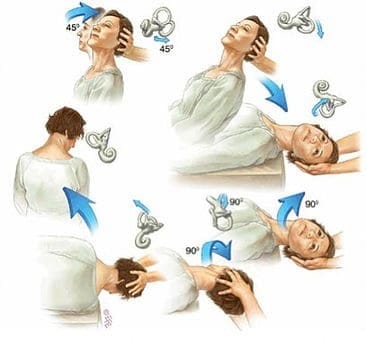
Vestibular Rehabilitation Therapy (VRT)
VRT is a specialized form of physiotherapy designed to improve balance and reduce vertigo symptoms through targeted exercises and maneuvers.
These exercises aim to promote adaptation and compensation within the vestibular system, helping the brain adjust to changes in balance and spatial orientation.
Common VRT exercises include gaze stabilization exercises, balance training, habituation exercises, and sensory integration techniques.
VRT is tailored to each individual’s specific needs and may include the following components:
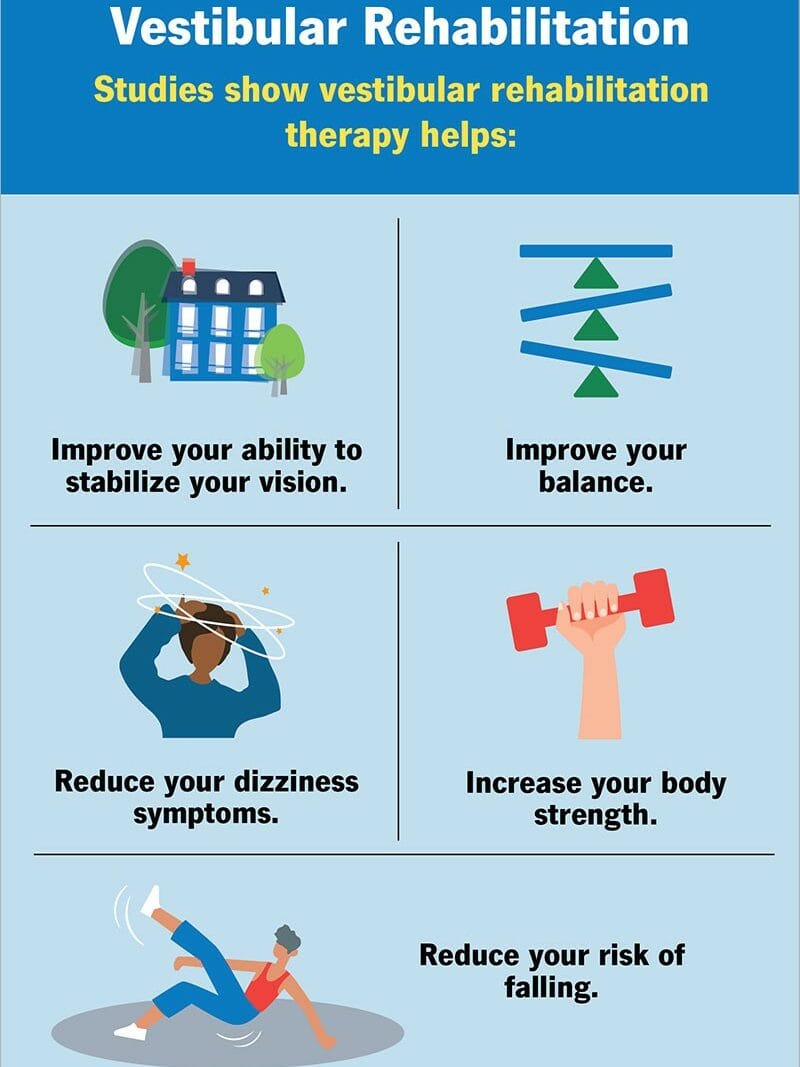
Canalith Repositioning Maneuvers (CRM)
Canalith repositioning maneuvers, such as the Epley maneuver for BPPV, are effective in treating certain types of vertigo caused by displaced calcium crystals in the inner ear.
A trained and qualified physiotherapist can perform these maneuvers to help reposition the crystals and alleviate symptoms of dizziness and spinning.
Gaze Stabilization Exercises
Gaze stabilization exercises aim to improve visual focus and stability during head movements, which can help reduce dizziness and improve balance.
Examples of gaze stabilization exercises include tracking moving objects with the eyes or performing head movements while maintaining focus on a stationary target.
Balance Training
Balance training exercises help improve stability and reduce the risk of falls in individuals with vertigo.
These physiotherapy exercises for vertigo focus on improving proprioception, coordination, and postural control through activities such as standing on one leg, walking in tandem, and using balance boards or stability balls.
A physiotherapist can provide personalized balance training exercises tailored to the individual’s specific needs and level of impairment.
Vestibular Habituation Exercises
Habituation exercises involve gradually exposing individuals to movements or stimuli that provoke vertigo symptoms in a controlled manner.
Over time, repeated exposure helps desensitize the vestibular system and reduce the intensity and frequency of vertigo episodes.
Examples of habituation exercises include head movements, visual tracking exercises, and simulated motion activities.
Lifestyle Modifications
In addition to physiotherapy interventions, certain lifestyle modifications can help manage vertigo symptoms and improve overall quality of life. These may include avoiding triggers such as sudden head movements or excessive visual stimuli, practicing stress management techniques, staying hydrated, and maintaining a healthy diet and sleep routine.
Physical therapy, specifically vestibular rehabilitation therapy, offers valuable tools and techniques for individuals struggling with vertigo. By addressing underlying vestibular dysfunction and improving balance and stability, physical therapists empower individuals to regain their independence and confidence in daily activities. If you’re experiencing vertigo symptoms, consider consulting with a physical therapist at Physiotherapy Oakville trained in vestibular rehabilitation to develop a personalized treatment plan tailored to your needs. With the right guidance and support, relief from vertigo is within reach, allowing you to find your balance and reclaim your life.
Click here to book an appointment with a physiotherapist at one of our eight locations
- Physiotherapy Etobicoke – Triangle Physiotherapy Etobicoke
- Oakville Physiotherapy Clinic – Triangle Physiotherapy Oakville
- Physiotherapy North York – Triangle Physiotherapy North York
- Mississauga Physiotherapy Clinics – Triangle Physiotherapy Mississauga
- Downtown Physiotherapy Clinics – Triangle Physiotherapy King West
- Uptown Physiotherapy Clinics – Triangle Physiotherapy Lawrence Park
- Physiotherapy Clinic Downtown Toronto – Triangle Physiotherapy Queens Quay
- Physiotherapy Clinics Mississauga – Triangle Physiotherapy Erin Mills
Physiotherapy can be highly effective in managing vertigo and improving balance. If you’re looking for physiotherapy in Etobicoke, Oakville, North York, Toronto, Lawrence Park, Queens Quay, Erin Mills, Mississauga, or Liberty Village, there are experienced physiotherapists available to help you regain stability and enhance your quality of life.
What is Sciatica?
Sciatica is a term used to describe a condition that affects the sciatic nerve in the leg. The client generally experiences pain and/or tingling, and numbness along the course of the nerve. This condition typically initiates in the lower back and the symptoms travel down the leg. The sciatic nerve originates by union of several nerve roots in the lower back and forms the largest nerve in the body. The sciatic nerve then passes through bony tunnels and various muscles which are compactly arranged and terminates in the knee. If the nerve gets irritated anywhere during this course, it may lead to Sciatica. The other most common cause is a ruptured intervertebral disc which may press on the nerve.
What are the symptoms of Sciatica?
- Pain – begins in the lower back and proceeds along the length of the nerve. It can be mild/sharp/excruciating. It may be constant or at intervals.
- Tingling &/or numbness- also along the length of the nerve.
- Muscle weakness may be present in the leg or the foot.
- Affected by posture
What are the causes of Sciatica?
Some of the most common causes of sciatica are:
- Herniated disc
- Degeneration of lumbar spine
- Spinal stenosis
- Trauma or fracture to the spine
- Irritation of sacroiliac joint
- Piriformis syndrome
- Muscle tightness such as that of the hamstring
What are the 7 best exercises for Sciatica?
Some of the most effective exercises for sciatica are:
- Pelvic Tilts: Lie on your back with knees bent and feet flat on the floor. Tighten your abdominal muscles and tilt your pelvis upward slightly, flattening your back against the floor. Hold for a few seconds, then release. Repeat several times.
- Piriformis Stretch: Sit on a chair with feet flat on the floor. Cross the affected leg over the opposite knee, then gently lean forward while keeping your back straight. Hold the stretch for 15-30 seconds and repeat on the other side.
- Hamstring Stretch: Lie on your back with one leg bent and the other extended straight up. Hold the back of your thigh of the straight leg with both hands and gently pull it towards your chest until you feel a stretch in the hamstring. Hold for 15-30 seconds and switch legs.
- Seated Spinal Twist: Sit on the floor with legs extended in front of you. Bend one knee and place the foot on the outside of the opposite knee. Twist your torso towards the bent knee, placing the opposite elbow on the outside of the bent knee. Hold for 15-30 seconds and switch sides.
- Child’s Pose: Start on your hands and knees, then sit back on your heels while reaching your arms forward on the ground. Hold the stretch, feeling the elongation in your spine and lower back. Hold for 15-30 seconds and repeat as needed.
- Cat-Cow Stretch: Start on your hands and knees in a tabletop position. Inhale, arching your back and lifting your head and tailbone towards the ceiling (Cow Pose). Exhale, rounding your back and tucking your chin to your chest (Cat Pose). Repeat for several breaths.
- Bridging: Lie on your back with knees bent and feet flat on the floor. Engage your core and glutes as you lift your hips towards the ceiling, creating a straight line from shoulders to knees. Hold for a few seconds, then lower back down. Repeat for several repetitions.
How do I book an appointment at a Triangle Physiotherapy Clinic near me?
Click HERE to book an appointment with a physiotherapist at one of our eight locations.
- Physiotherapy Etobicoke – Triangle Physiotherapy Etobicoke
- Oakville Physiotherapy Clinic – Triangle Physiotherapy Oakville
- Physiotherapy North York – Triangle Physiotherapy North York
- Mississauga Physiotherapy Clinics – Triangle Physiotherapy Mississauga
- Downtown Physiotherapy Clinics – Triangle Physiotherapy King West
- Uptown Physiotherapy Clinics – Triangle Physiotherapy Lawrence Park
- Physiotherapy Clinic Downtown Toronto – Triangle Physiotherapy Queens Quay
- Physiotherapy Clinics Mississauga – Triangle Physiotherapy Erin Mills
“Dealing with sciatica can be challenging, but with the right exercises and physiotherapy, relief is within reach. Triangle Physiotherapy offers specialized care across the GTA, including Physiotherapy in Etobicoke, Oakville, North York, Toronto, Lawrence Park, Queens Quay, Erin Mills, Mississauga, and Liberty Village. Our expert team is dedicated to helping you manage and alleviate sciatica pain effectively.”
What is the difference between a physiotherapist, massage therapist, and chiropractor?
Which practitioner is the best to see?
This is one of the most common questions that we get asked! Let’s dive in and learn more about how each of these practitioners can make a difference to your health.
What are the similarities between physiotherapists, massage therapists, and chiropractors?
- They treat musculoskeletal conditions – soft tissue (muscles, ligaments, tendons), bones, or the nervous system.
- All three are regulated professions – you cannot call yourself an RMT, chiropractor, or physiotherapist unless you are registered with their regulatory College.
- They all have specialized training – Physiotherapists at a recognized university, Chiropractors at a recognized Chiropractic College, and RMTs at a recognized Massage therapy course.
- All three have to pass exams administered by their regulatory board.
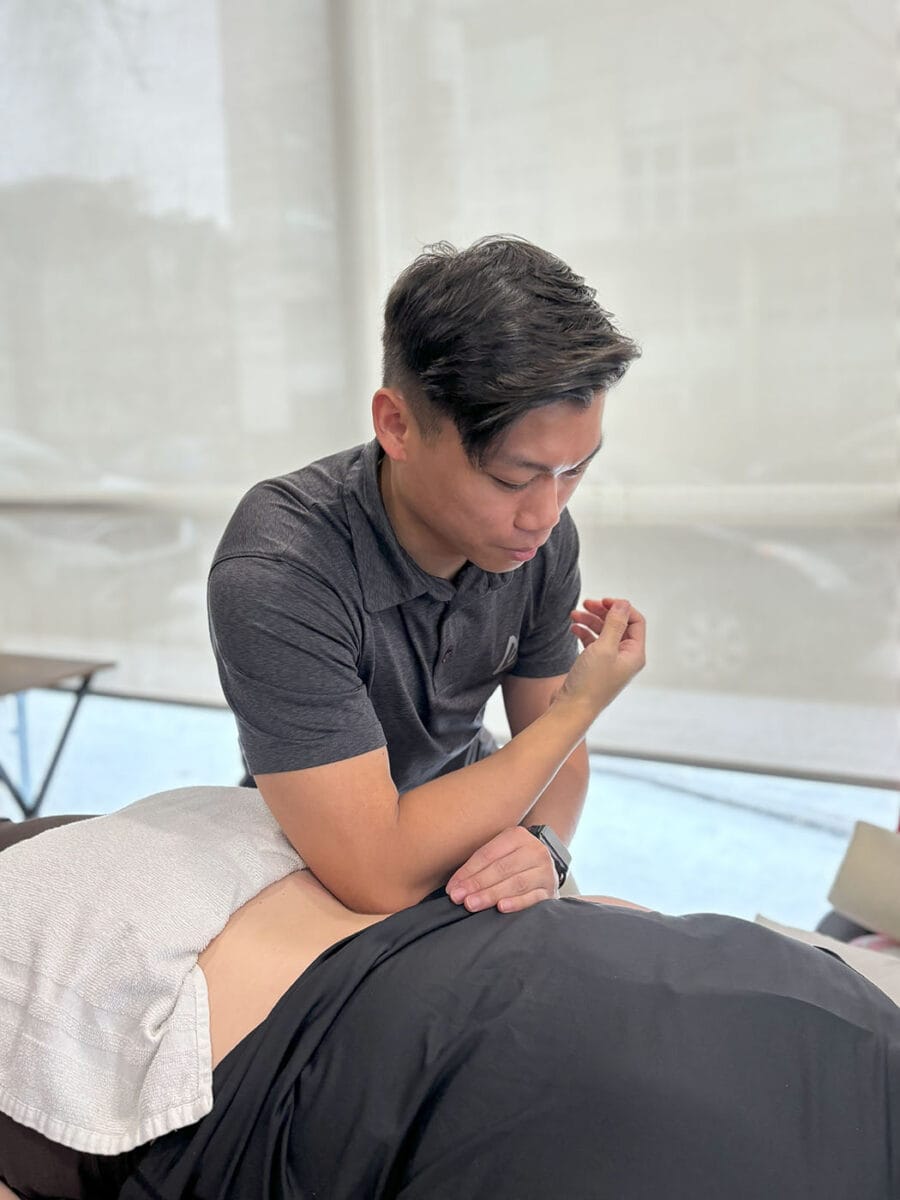
What does a Chiropractor do?
Chiropractic is a licensed healthcare profession that emphasizes the body’s ability to heal itself. Treatment typically involves manual therapy, often including spinal manipulation which helps restore joint function.
What does an RMT do?
An RMT, or Registered Massage Therapist, is a licensed healthcare professional who specializes in providing therapeutic massage treatments. They are trained to assess and treat various musculoskeletal conditions and injuries using hands-on techniques to manipulate muscles, tendons, ligaments, and other soft tissues of the body.
What does a physiotherapist do?
You should consider seeing a physiotherapist when you’re experiencing pain or discomfort, or have mobility issues that affect your daily activities and quality of life. Physiotherapists are healthcare professionals trained to diagnose and treat a wide range of musculoskeletal and movement-related conditions. They can also help with vestibular rehabilitation and pelvic health issues.
Physiotherapists can look at alignment but they also test joint mobility, muscle strength, muscle flexibility, nerve function, posture, and movement patterns. They restore movement and improve pain predominantly through exercise rehabilitation, postural re-training, and lifestyle advice, but also use hands-on techniques.
Can I see all three of these practitioners?
Absolutely! All three practitioners work collaboratively to get you the best possible outcomes and help you reach your health goals.
How do I book an appointment at a Triangle Physiotherapy Clinic near me?
Click HERE to book an appointment with a physiotherapist, RMT or chiropractor at one of our eight locations.
- Physiotherapy Etobicoke – Triangle Physiotherapy Etobicoke
- Oakville Physiotherapy Clinic – Triangle Physiotherapy Oakville
- Physiotherapy North York – Triangle Physiotherapy North York
- Mississauga Physiotherapy Clinics – Triangle Physiotherapy Mississauga
- Downtown Physiotherapy Clinics – Triangle Physiotherapy King West
- Uptown Physiotherapy Clinics – Triangle Physiotherapy Lawrence Park
- Physiotherapy Clinic Downtown Toronto – Triangle Physiotherapy Queens Quay
- Physiotherapy Clinics Mississauga – Triangle Physiotherapy Erin Mills
Choosing between a physiotherapist, massage therapist, or chiropractor depends on your specific health needs and goals. If you’re considering physiotherapy in Etobicoke, Oakville, North York, Toronto, Lawrence Park, Queens Quay, Erin Mills, Mississauga, or Liberty Village, skilled physiotherapists are available to help you decide on the best care plan for optimal health and recovery.
What is Diastasis Recti?
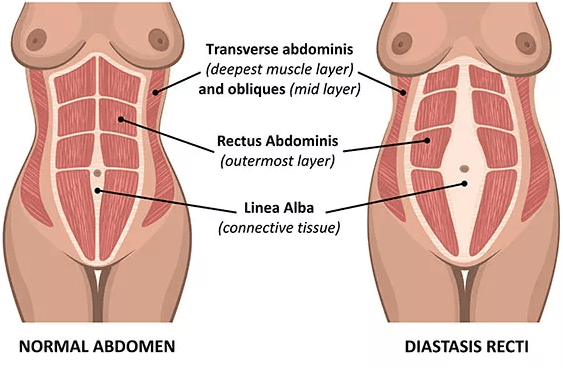
Diastasis recti is a condition where the right and left sides of the rectus abdominis (the “six-pack” muscles) separate, causing a gap in the abdominal wall. This condition is relatively common, especially among pregnant women and newborns, but it can affect individuals of any age or gender.
What are the causes of Diastasis Recti?
Diastasis recti often occurs during pregnancy due to the expanding uterus putting pressure on the abdominal muscles. It can also result from rapid weight gain or loss, improper lifting techniques, excessive abdominal exercises, or genetics.
What are the symptoms of Diastasis Recti?
The most noticeable symptom of diastasis recti is a visible bulge or ridge running down the midline of the abdomen, particularly noticeable when the person tries to sit up or strain. Other symptoms may include lower back pain, poor posture, and difficulty with core strength and stability.
How can it be treated?
Treatment options for diastasis recti may include physical therapy exercises to strengthen the abdominal muscles, wearing an abdominal binder or splint to provide support, and in severe cases, surgery to repair the separated muscles. It’s essential to consult a physiotherapist at Physiotherapy Oakville for personalized advice on treatment options.
Diastasis recti commonly occurs during pregnancy and may persist postpartum. Women who experience diastasis recti after childbirth should consult with a physiotherapist at Physiotherapy Oakville for guidance on safe exercises and techniques to promote healing and recovery. Joining Physiotherapy Oakville can provide you with the expert support needed to effectively manage and overcome diastasis recti.
Where can I find a pelvic health physiotherapist in Mississauga?
We have 8 locations with pelvic health physiotherapists to help you.
- Pelvic Health Physiotherapy Etobicoke – Triangle Physiotherapy Etobicoke
- Oakville Pelvic Health – Triangle Physiotherapy Oakville
- Pelvic Health Physiotherapy North York – Triangle Physiotherapy North York
- Mississauga Pelvic Health – Triangle Physiotherapy Mississauga
- Downtown Pelvic Health – Triangle Physiotherapy King West
- Uptown Toronto Pelvic Health – Triangle Physiotherapy Lawrence Park
- Pelvic Physiotherapy Downtown Toronto – Triangle Physiotherapy Queens Quay
- Mississauga Pelvic Health – Triangle Physiotherapy Erin Mills
Managing diastasis recti effectively often involves targeted physiotherapy to strengthen the core and restore function. If you’re looking for specialized care, consider physiotherapy in Etobicoke, Oakville, North York, Toronto, Lawrence Park, Queens Quay, Erin Mills, Mississauga, or Liberty Village. Experienced physiotherapists in these locations can provide tailored treatment plans to help you recover and regain strength.
Gardening is a deeply rewarding hobby, but for many enthusiasts, it can also be a source of physical discomfort and pain. From sore backs to achy knees, the joys of gardening can sometimes be overshadowed by the strain it puts on our bodies. However, with the right techniques and precautions, it’s possible to enjoy gardening without the pain. In this blog post, we’ll explore some helpful tips and tricks to make your gardening experience as enjoyable and pain-free as possible.
Proper Body Mechanics
One of the most important aspects of pain-free gardening is practicing proper body mechanics. This means using correct posture and techniques to minimize strain on your muscles and joints. Here are a few key tips:
- Bend at the knees, not at the waist, when lifting heavy objects such as bags of soil or pots.
- Use ergonomic gardening tools with padded handles to reduce strain on your hands and wrists.
- Take frequent breaks and avoid staying in one position for too long to prevent stiffness and discomfort.
Warm-up
Just like any other physical activity, gardening can benefit from a proper warm-up routine. Before diving into your gardening tasks, take a few minutes to stretch your muscles and loosen up your joints. Simple exercises like arm circles, leg swings, and back stretches can help prepare your body for the work ahead and reduce the risk of injury.
Choose the Right Tools
Investing in the right gardening tools can make a world of difference when it comes to preventing pain and discomfort. Look for tools that are lightweight, ergonomic, and designed to reduce strain on your body. Long-handled tools can help you avoid bending over excessively, while padded kneelers can protect your knees during tasks like planting and weeding.
Break Tasks into Manageable Chunks
Instead of trying to tackle your entire garden in one marathon session, break your gardening tasks into smaller, more manageable chunks. Spread out your work over several days or weeks to give your body time to rest and recover between sessions. Not only will this approach help prevent pain and fatigue, but it will also allow you to enjoy your time in the garden without feeling overwhelmed.
Embrace Container Gardening
If you struggle with mobility issues or have limited space, container gardening can be a fantastic alternative to traditional gardening. By planting in pots and containers, you can bring the joys of gardening right to your doorstep without the need for bending, kneeling, or heavy lifting. Plus, container gardening allows for greater flexibility and creativity in your garden design.

How do I book an appointment with a Physiotherapist near me?
Click HERE to book an appointment with a physiotherapist or chiropractor at one of our eight locations.
- Physiotherapy Etobicoke – Triangle Physiotherapy Etobicoke
- Oakville Physiotherapy Clinic – Triangle Physiotherapy Oakville
- Physiotherapy North York – Triangle Physiotherapy North York
- Mississauga Physiotherapy Clinics – Triangle Physiotherapy Mississauga
- Downtown Physiotherapy Clinics – Triangle Physiotherapy King West
- Uptown Physiotherapy Clinics – Triangle Physiotherapy Lawrence Park
- Physiotherapy Clinic Downtown Toronto – Triangle Physiotherapy Queens Quay
- Physiotherapy Clinics Mississauga – Triangle Physiotherapy Erin Mills
Gardening can be a joyful activity without the burden of pain, especially with the right guidance and exercises. If you’re experiencing discomfort, consider seeking physiotherapy in Etobicoke, Oakville, North York, Toronto, Lawrence Park, Queens Quay, Erin Mills, Mississauga, or Liberty Village. Expert physiotherapists in these areas can help you manage pain and improve your strength, so you can enjoy gardening pain-free.


